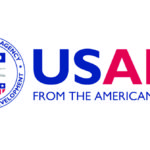Home News US funds $500,000 project to promote transparency in extractive sectors
The United States Agency for International Development (USAID) has funded an Extractive Industries Transparency Project, expected to aid in the proper management and operations of the entire extractive industry. 
This initiative, pegged at a whopping US$500,000, would have birthed after partnerships from the Guyana Extractive Industry Transparency Initiative (EITI) Secretariat, the Multi-Stakeholder Group and the industry and civil societies. Expected to commence in September 2020, the entire programme will be implemented through the Pan American Development Foundation (PADF).
In a statement issued by the US Embassy in Georgetown, it was stated that efforts behind this project are linked to building capacity for administration and management of these resources and filling the gaps which currently exist.
“Programme support will also address required changes in data collection, monitoring and reporting systems that support Guyana’s attainment of the EITI standard. Activities will include streamlining systematic public disclosure of data from the oil, gas, mining, forestry and fishery sectors, and raising awareness among citizens about the importance of transparency and accountability in the extractives sector”.
According to USAID, the discovery of oil heightens the need for such initiative, in ensuring accountability and responsible management.
“The discovery of vast offshore oil reserves in 2017 constituted a milestone for Guyana’s economic prospects and is expected to rapidly propel Guyana’s economy upward. During this transition period, transparency, accountability and good governance will determine Guyana’s ability to responsibly manage its extractive resources and ensure revenues benefit the Guyanese people, and this programme supports attainment of these standards”.
The EITI is a global standard for the good governance of oil, gas and mineral resources. Guyana will be producing first oil in a matter of months, making this a crucial project at this time.
The country has been EITI compliant since 2017 and its first report was submitted in April this year ahead of the deadline that was set. In the report, it was revealed that the extractive industry in Guyana, particularly gold mining, has contributed to 65.1 per cent of Guyana’s total exports for 2017.
According to the report, total revenues from the sector in the 2017 fiscal year amounted to $20.8 billion. The Guyana Gold Board, to which gold declarations are made, accounted for 33 per cent of this revenue. This is followed by the Guyana Revenue Authority, 32 per cent and the Ministry of Finance, 18 per cent.
Gold and other minerals contributed $17.4 billion or 84 per cent of revenue from the extractive industries. On the other hand, oil and gas contributed $2.8 billion or 14 per cent. Bauxite, one of Guyana’s oldest industries, contributed $479 million or 2 per cent.
The extractive industries’ contribution to exports has a dollar value of 193.2 billion. Besides the sector’s contribution to exports, it contributed 9.3 per cent to total Government revenues and 4.2 per cent to Guyana’s total employment. Its contribution to Guyana’s overall Gross Domestic Product (GDP) was 20 per cent.
The document also consisted of a number of recommendations inked by the crafters, one of which called for an independent audit for all financial data presented in the extractive sector.
It stated that routine disclosure of the data required by the EITI Standard and the financial data should be subjected to “credible, independent audit, applying international standards”. This was given from the fact that while state agencies provided requisite data, it was not independently audited, as stated in the EITI standard.
Adding to that, the report contended that much of the data on the number of revenues collected or budgetary allocations were not electronically preserved. As such, if total transparency is to be addressed, systems would have to be implemented to change the format of the data.
One of the key ideas was to develop an EITI database within Government agencies to enhance the management information systems. These agencies included the Guyana Revenue Authority, the Guyana Gold Board, the Guyana Geology and Mines Commission, the National Insurance Scheme, the Environmental Protection Agency and the Finance Ministry.

